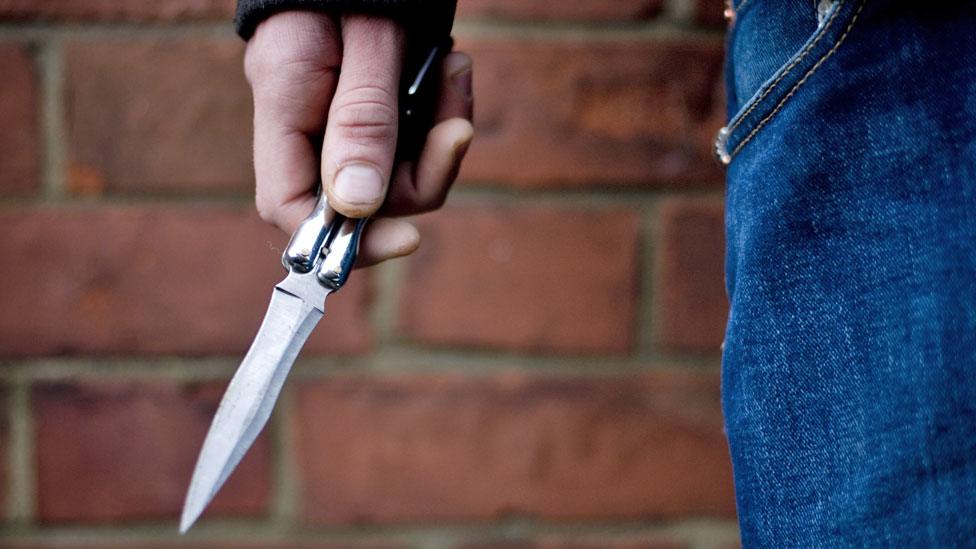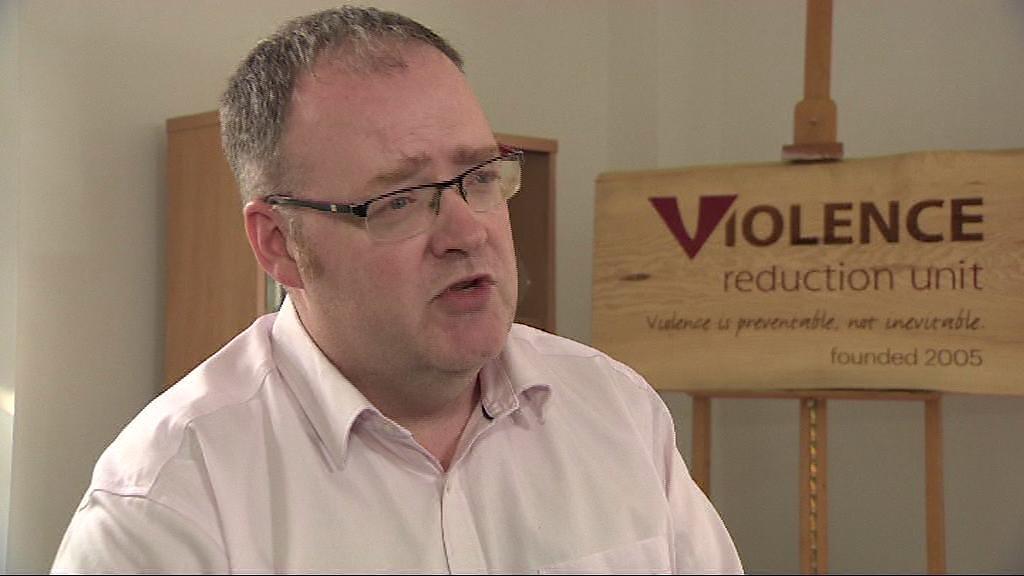Glasgow drives huge fall in serious violent crime across Scotland
- Published
- comments

Glasgow has seen a huge drop in recorded violent crime in the last decade
Falling levels of serious violent crime in the west of Scotland have driven a reduction across the country over the past decade, a study has concluded.
The analysis said serious assault and attempted murder cases fell by 35%, external in Scotland between 2008-09 and 2017-18.
The study said 89% of that drop was due to fewer cases in the west, particularly in and around Glasgow.
There were 1,872 attempted murders and serious assaults in Glasgow in 2008-09 compared to 914 in 2017-18.
It follows analysis of more than 1,000 police case files over a 10-year period.
The study also found that serious assaults were now far less likely to involve a weapon than those recorded in 2008-09.
Alcohol factor
The Scottish government study said the overall reduction was also being helped by a large drop in the number of young people involved in serious violent crime.
The government said this was partly due to public health campaigns including "No knives, better lives".
Will Linden says much has been done to cut violence, but the "really difficult to tackle bit of violence" is the next big issue
But the study showed alcohol continued to be a factor in violence, with almost two-thirds of serious assaults in 2017-18 having involved drink.
The analysis was based on recorded crimes figures published last year that revealed serious assault and attempted murder cases fell by 35% between 2008-09 and 2017-18.
The report noted that non-sexual crimes of violence recorded by police fell by 43% over the same period.
Other findings included:
the proportion of crimes occurring in a public or private setting has remained steady, with most (70%) taking place in public
while most serious assaults (80%) are still against a male victim, the total number of these cases fell 41%, while there was little change in the number of female victims
most male victims are seriously assaulted by an acquaintance (55%) or stranger (23%), while female victims are more likely to be assaulted by a partner, ex-partner or relative (52%)
A separate study over the same period highlighted the reduction in the proportion of younger offenders convicted of certain violent crimes, as well as the overall fall in convictions.
The deputy director of Scotland's Violence Reduction Unit, Will Linden, believed that reducing violence further would require tackling problems in society.
He told BBC Scotland: "When we first started out [with the unit], we said that if we wanted to reduce violence in Scotland we had to tackle it in the west and tackle it in Glasgow because that was responsible for a disproportionate high level."
Mr Linden went on to says that the success at cutting violence in and around Glasgow needed to be built upon by tackling problems in society such as alcohol, poverty, social isolation and exclusion.
He said: "Those are the big issues that we need to actually tackle if we want to reach those next levels of reduction in Scotland."
'Positive relationships'
Justice Secretary Humza Yousaf welcomed the findings and said the research highlighted the positive impact of early intervention.
He added: "Our public health approach to reducing violence has garnered interest from London and elsewhere in the UK, as well as from the World Economic Forum.
"Despite this progress, we are working closely with police and others to tackle violence wherever it persists, and that includes keeping women and girls equally safe."
Mr Yousaf said the government had strengthened the law to give police and prosecutors greater powers to tackle domestic abuse, while also promoting positive relationships among young people.
- Published4 June 2019
